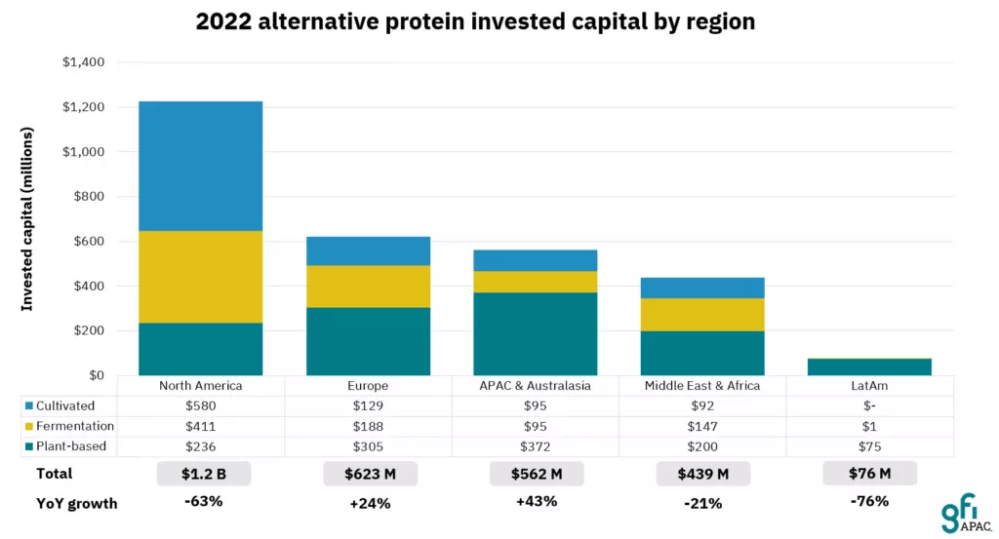Better Bite Ventures, a fund focused on Asia Pacific alternative protein startups, has invested in four startups under its early-stage First Bite initiative, which is now open for new applications.
First Bite offers a US$50,000 investment to new alt protein founders in the APAC region, Better Bite founding partner Michal Klar told AFN.
“We are flexible with the form/instrument, but typically it’s a SAFE [Simple Agreement for Future Equity, whereby in exchange for cash, the investor gets the right to preferred shares in the startup when it raises a future round] or convertible note, given the early stage nature of the startups we invest in.”
‘There’s no such thing as too early’
Given that Better Bite Ventures is already an early stage investor, what’s the difference between First Bite and its standard approach?
According to Klar: “We invest early anyway (pre-seed and seed), but not necessary that early. For First Bite, we are writing checks even at the idea stage. In some cases, when we start talking with founders, they have not even incorporated the company. That also means that the check size is slightly smaller.
“We did it [First Bite] in late 2022 for the first time, and we are happy with the results. It is great to support four teams to help them kickstart their projects. We will now run it on a regular basis, likely several times a year.”
Founding partner Simon Newstead added: “Founders often think it’s too early to approach us when they’re just starting with an innovative idea. In reality, there’s no such thing as too early; we want to talk to and support founders right from the start of their journey.”
While overall funding in alt protein fell 42% in 2022 according to the Good Food Institute, investment in the APAC region was up 43%. “APAC is the world’s largest and fastest-growing protein market,” said Klar. “We believe innovative startups are key to making the region’s food system more sustainable and resilient, and we want to support as many exceptional founders as possible.”
The first four startups to receive investments through the First Bite initiative are:
- Cultivaer (Singapore). A startup “developing novel bioreactor-free technology that could significantly reduce costs and accelerate the scalability of fermentation-derived alt proteins.” Klar would not provide further details given the firm is still in stealth mode.
- EatKinda (New Zealand). A startup cofounded by food technologist Mrinali Kumar and vegan chef Jenni Matheson to make plant-based ice cream featuring ‘imperfect’ cauliflower that would otherwise go to waste.
- Klevermeat (India). India’s first cultivated seafood startup, Klevermeat was cofounded by Nithin Shetty and Swapnil Kamble. According to Klar: “The high cost of production is still the major hurdle in cultivated meat and seafood. We believe India has a potential to drive it down given a unique combination of world-class, but more affordable R&D and bioprocessing talent and more economical scale up facilities.”
- Allium Bio (Singapore). Cofounded by Jon Ho and Albertus Sarwono, Allium Bio co-cultures strains of microalgae and mycelium to create ingredients that improve the taste and performance of plant-based products. Its first product is a functional protein isolate designed to “replace soy protein and many of the common functional additives for the plant-based meat industry.”
According to Ho: “When we put microalgae and mycelium together, we get this incredible 1+1=10 effect, where the final ingredient is more than the sum of its parts. The two species work together to create this even faster-growing product with all the high-value properties of microalgae that is also easier and cheaper to harvest.”
To date, Better Bite Ventures has invested in 20 early-stage alt protein companies across Asia Pacific in areas including molecular farming; plant-based meat, eggs, and dairy; cell-cultured meat and seafood; and fermentation-based foods. Portfolio companies include Change Foods, Vow, Umami Meats, Next Gen Foods (TiNDLE) and Miruku.
The next round of First Bite applications is open until May 19.






